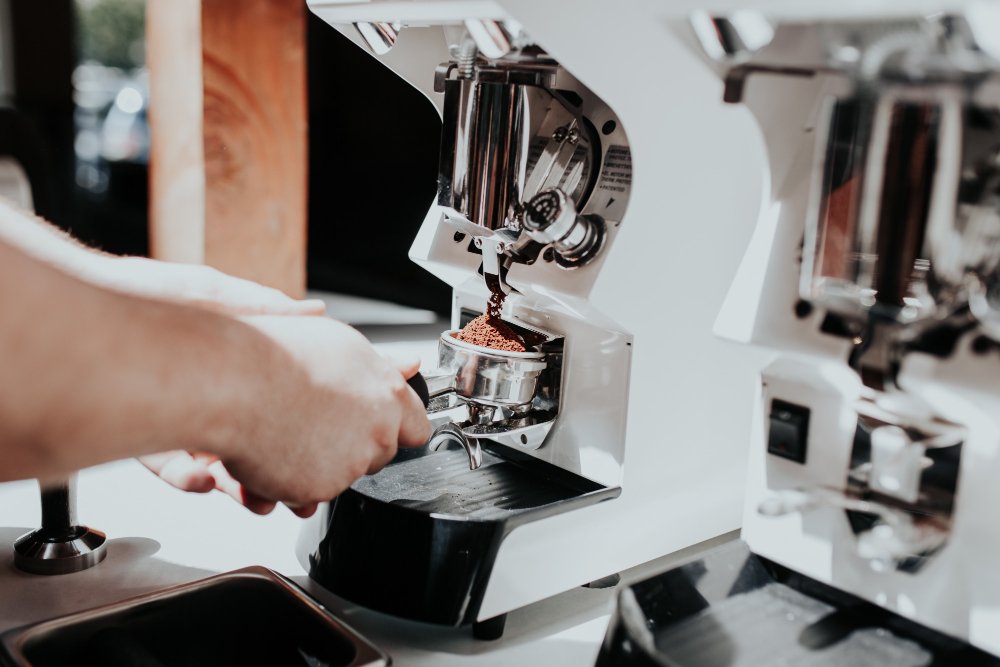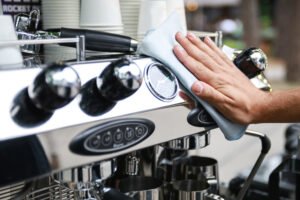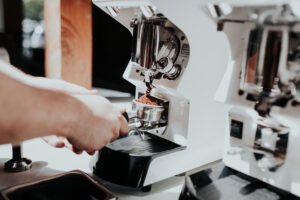Choosing the right commercial coffee machine is essential for any business that wants to offer quality coffee and keep customers coming back. Whether you’re setting up a café, upgrading equipment in a restaurant, or adding a coffee station to your office, selecting the right machine can make a big difference. This guide will walk you through the key factors to consider when choosing a commercial coffee machine, with insights tailored to different business needs.
1. Identify Your Business Needs
The first step in choosing the right coffee machine is understanding your business requirements. Ask yourself these questions:
- What’s the expected daily coffee output?
If you run a busy café that serves hundreds of cups a day, you’ll need a machine that can handle high volume. For smaller businesses or offices, a less robust machine might be sufficient. - What kind of coffee do you want to serve?
Different machines offer different types of coffee, from espresso and cappuccino to brewed coffee and specialty drinks. Determine if you need a machine that can make a wide range of beverages or if basic espresso is sufficient. - Who will be operating the machine?
In a high-end café, baristas may prefer a semi-automatic machine that allows for manual control over each shot. In an office or self-service setup, a fully automatic machine might be more appropriate for ease of use.
Understanding your specific needs will narrow down your options and help you focus on machines designed for your business environment.
2. Types of Commercial Coffee Machines
There are several main types of commercial coffee machines, each suited to different kinds of businesses. Here’s an overview of the most common types:
a) Espresso Machines
Espresso machines are popular in cafés and coffee shops. They come in different variations:
- Manual Espresso Machines: These are operated entirely by hand, allowing for maximum control. They require skilled baristas and are suitable for artisanal coffee shops.
- Semi-Automatic Machines: These machines control water temperature and pressure but require the barista to grind, tamp, and start/stop the extraction. They offer control while simplifying some tasks, making them popular in specialty cafés.
- Fully Automatic Machines: These machines automate more steps, including extraction, and sometimes even milk frothing. They’re ideal for busy environments where speed and consistency are important.
b) Bean-to-Cup Machines
Bean-to-cup machines grind fresh coffee beans and brew espresso or coffee automatically. They’re fully automatic and very user-friendly, ideal for offices, hotels, or self-service locations. Bean-to-cup machines often come with milk frothing capabilities, making them perfect for businesses that need a variety of coffee drinks with minimal staff involvement.
c) Filter Coffee Machines
Filter coffee machines (or drip coffee makers) are designed for brewing large volumes of coffee. These machines are simple to use, require minimal training, and are perfect for serving brewed coffee in bulk, such as in hotels, offices, or conference centers.
d) Capsule Machines
Capsule machines use pre-packaged pods to brew coffee. They’re convenient and require little maintenance, making them suitable for small offices or self-service stations. However, they may have limited options and higher per-cup costs.
e) High-Pressure Brewers
High-pressure brewers are versatile machines capable of brewing espresso and other specialty coffee drinks under high pressure. These are common in coffee shops and restaurants where variety and quality are prioritized.
3. Consider the Volume and Capacity
The machine’s capacity should align with the volume of coffee your business expects to serve daily. Here’s a rough guide:
- Low Volume (20-50 cups per day): Capsule machines, small bean-to-cup machines, or semi-automatic espresso machines might be sufficient.
- Medium Volume (50-150 cups per day): A robust bean-to-cup machine or a high-capacity semi-automatic espresso machine is recommended.
- High Volume (150+ cups per day): A heavy-duty automatic or semi-automatic espresso machine with a dual boiler system will keep up with high demand and minimize wait times.
Choosing a machine with the right capacity ensures your coffee service remains efficient during peak hours and minimizes downtime.
4. Maintenance and Cleaning Requirements
Regular maintenance is essential to keep your coffee machine in top condition, and some machines are easier to maintain than others.
- Automatic Cleaning Features: Many fully automatic and bean-to-cup machines come with self-cleaning programs, which make maintenance easy. This feature is particularly helpful in high-turnover settings or offices where minimal staff interaction is required.
- Daily Cleaning Needs: Espresso machines usually require more manual cleaning, especially with steam wands and portafilters. Make sure you have staff who are trained and ready to handle this maintenance.
- Water Filtration: Hard water can damage coffee machines and affect coffee flavor. Installing a water filtration system can extend your machine’s life and ensure consistent coffee quality.
Choose a machine with cleaning and maintenance requirements that match your staff’s capacity and willingness to maintain the equipment properly.
5. Budget Considerations
The cost of commercial coffee machines varies widely depending on the type and functionality:
- Low Budget (under $1,000): Capsule machines and small drip coffee makers are affordable options, ideal for small offices or low-volume setups.
- Mid-Range Budget ($1,000 – $5,000): This range covers many reliable semi-automatic espresso machines and bean-to-cup models suitable for medium-sized businesses and coffee shops.
- High Budget ($5,000+): High-end espresso machines, dual boiler systems, and high-capacity bean-to-cup machines fall in this category, ideal for busy cafés and restaurants with high demand.
While it may be tempting to opt for the cheapest machine, remember that investing in a reliable, efficient machine can save you money in the long run by minimizing downtime, maintenance costs, and lost sales.
6. Additional Features to Consider
Modern coffee machines often come with additional features that can enhance the user experience and offer more flexibility:
- Milk Frothing System: Some machines come with automatic milk frothing options, which is ideal for locations where staff may lack barista training. Others have manual steam wands for more control.
- Programmable Settings: Fully automatic machines with programmable settings can store recipes and automate specific drinks, which speeds up service and ensures consistency.
- Touchscreen Interfaces: Touchscreens make machines easier to use and allow for customization. In self-service setups, touchscreens can enhance customer experience by making the machine more intuitive.
Consider which features are necessary for your business and which might be nice extras. The right features can improve efficiency and customer satisfaction.
7. Brand Reputation and Support
Lastly, consider the brand and its reputation for quality and customer support. Look for brands with positive reviews, especially for durability and ease of maintenance. It’s also helpful if the brand or supplier offers strong after-sales support, including installation, training, and access to replacement parts.
Brands like CoffeeTeck offer reliable commercial coffee machines and excellent support for businesses, making it easier to keep your machine running smoothly and to get help when needed.
Conclusion
Choosing the right commercial coffee machine involves understanding your business needs, balancing volume and budget, and evaluating maintenance requirements. By considering these factors carefully, you can select a machine that will provide excellent coffee, keep your customers happy, and support the growth of your business.
Investing in a suitable coffee machine is a smart decision that will pay off in terms of customer satisfaction and operational efficiency. Happy brewing!





